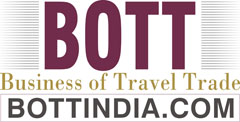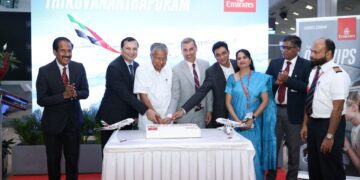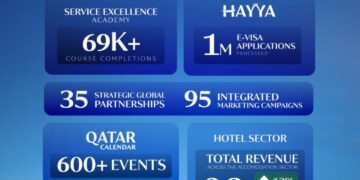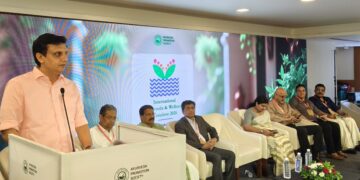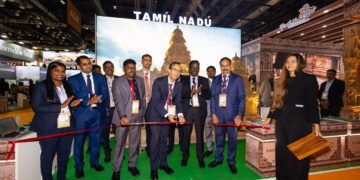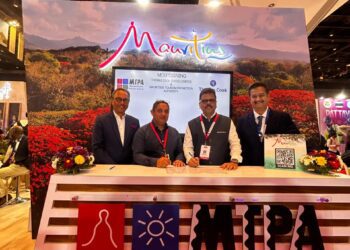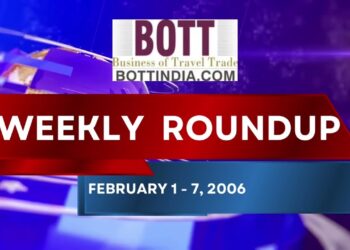Shri Jyotiraditya M. Scindia, Union Minister of Civil Aviation, apprised the media about the important features of the PLI Scheme in a press conference here today. He said that under the PLI scheme, incentives of Rs. 120 crore will be given in the next 3 years. This amount is 1.5 times the combined size of the manufacturing drone sector. Over a period of three years, estimated investment worth ₹5,000 Crore for manufacturing sector drones will be done which in turn will bring a turnover of Rs 900 crore, and 10,000 job opportunities will be created. He further added that our objective is to establish India as a global drone hub by 2030 and Ministry of Civil Aviation is committed to facilitate industry, service delivery and consumers in achieving the aforesaid target.
Top 15 Features of the PLI Scheme for Drones, 2021
- The total amount allocated for the PLI scheme for drones and drone components is INR 120 crore spread over three financial years. This amount is nearly double the combined turnover of all domestic drone manufacturers in FY 2020-21.
- The incentive for a manufacturer of drones and drone components shall be as high as 20% of the value addition made by her.
- The value addition shall be calculated as the annual sales revenue from drones and drone components (net of GST) minus the purchase cost (net of GST) of drone and drone components.
- The Government, has agreed to keep the PLI rate constant at 20% for all three years, an exceptional treatment given only to the drone industry. In PLI schemes for other sectors, the PLI rate reduces every year.
- The proposed tenure of the PLI scheme is three years starting in FY 2021-22. The PLI scheme will be extended or redrafted after studying its impact in consultation with the industry.
- The Government has agreed to fix the minimum value addition norm at 40% of net sales for drones and drone components instead of 50%, another exceptional treatment given to the drone industry. This will allow widening the number of beneficiaries.
- The PLI scheme covers a wide variety of drone components:
- Airframe, propulsion systems(engine and electric), power systems, batteries and associated components, launch and recovery systems;
- Inertial Measurement Unit, Inertial Navigation System, flight control module, ground control station and associated components;
- Communications systems (radio frequency, transponders, satellite-based etc.)
- Cameras, sensors, spraying systems and related payload etc.;
- ‘Detect and Avoid’ system, emergency recovery system, trackers etc. and other components critical for safety and security.
- The list of eligible components may be expanded by the Government from time to time, as the drone technology evolves.
- The Government has agreed to widen the coverage of the incentive scheme to include developers of drone-related IT products also.
- The Government has kept the eligibility norm for MSME and startups in terms of annual sales turnover at a nominal level – INR 2 cr (for drones) and INR 50 lakhs (for drone components). This will allow widening the number of beneficiaries.
- Eligibility norm for non-MSME companies in terms of annual sales turnover has been kept at INR 4 crore (for drones) and INR 1 crore (for drone components).
- The incentive payable to a manufacturer of drones and drone components shall be simply one-fifth of her value addition as illustrated below for a sample year (say, FY 2021-22):
| Illustration: PLI calculation for a manufacturer (for sample year FY 2021-22) | |||||
| Claim year | Sales – Net of GST (INR cr) | Purchase – Net of GST (INR cr) | Value addition (INR cr) | PLI
rate (%) |
PLI due (INR cr) |
| FY 2021-22 | 100 | 60 | 100–60 = 40 | 20% | 40 x 20% = 8 |
- PLI for a manufacturer shall be capped at 25% of total annual outlay. This will allow widening the number of beneficiaries.
- In case a manufacturer fails to meet the threshold for the eligible value addition for a particular financial year, she will be allowed to claim the lost incentive in the subsequent year if she makes up the shortfall in the subsequent year.
- The estimated payout schedule is as shown below:
| Estimated payout schedule of PLI for drones and drone components | ||||||
| Claim year | Sales – Net of GST (INR cr) | Purchase – Net of GST (INR cr) | Eligible value addition (INR cr) | PLI rate for value addition (%) | Applicable PLI (INR cr) | Disburse-ment year |
| FY 21-22 | 200 | 120 | 80 | 20% | 16 | FY 22-23 |
| FY 22-23 | 400 | 240 | 160 | 20% | 32 | FY 23-24 |
| FY 23-24 | 900 | 540 | 360 | 20% | 72 | FY 24-25 |
| TOTAL | 1500 | 900 | 600 | 20% | 120 | |
Drones offer tremendous benefits to almost all sectors of the economy. These include– agriculture, mining, infrastructure, surveillance, emergency response, transportation, geo-spatial mapping, defence, and law enforcement to name a few. Drones can be significant creators of employment and economic growth due to their reach, versatility, and ease of use, especially in India’s remote and inaccessible areas.
Given its traditional strengths in innovation, information technology, frugal engineering and its huge domestic demand, India has the potential of becoming a global drone hub by 2030.
The PLI scheme comes as a follow-through of the liberalised Drone Rules, 2021 released by the Central Government on 25 August 2021. The PLI scheme and new drone rules are intended to catalyse super-normal growth in the upcoming drone sector.
Likely Impact of recent Drone Initiatives
Thanks to the new rules and the incentive scheme, the drones and drone components manufacturing industry may see an investment of over INR 5,000 crore over the next three years. The annual sales turnover of the drone manufacturing industry may grow from INR 60 crore in 2020-21 fold to over INR 900 crore in FY 2023-24. The drone manufacturing industry is expected to generate over 10,000 direct jobs over the next three years.
The drone services industry (operations, logistics, data processing, traffic management etc.) is far bigger in scale. It is expected to grow to over INR 30,000 crore in next three years. The drone services industry is expected to generate over five lakh jobs in three years.
Follow BOTT on LinkedIn, Facebook, Twitter & Instagram
Subscribe BOTT Channels on WhatsApp & Telegram to receive real time updates
